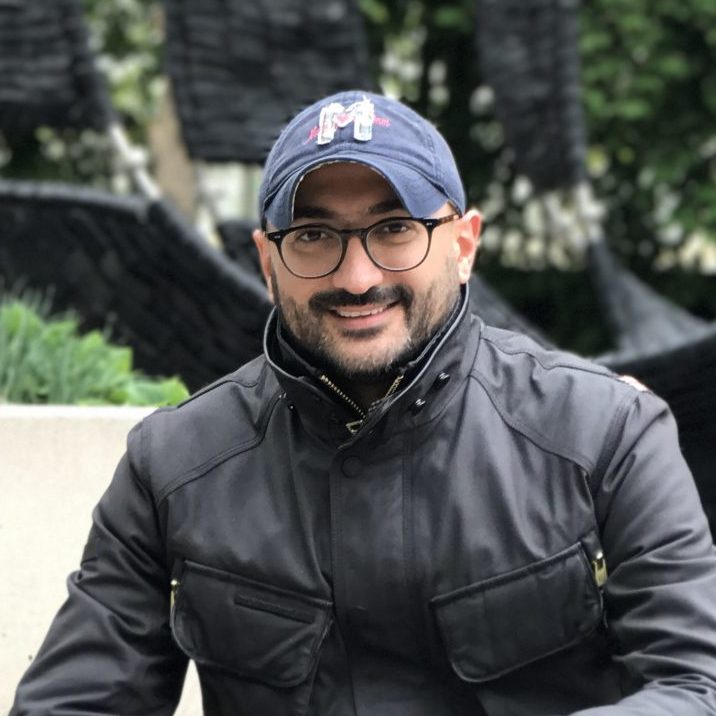Bassam Sebti '08 (M.A.), The World Bank
At the time of this interview, Bassam Sebti '08 (M.A.) was the web and social media Arabic editor at The World Bank.

How did you end up at The World Bank?
After I graduated from Saint Joseph’s University, I got a job at a nonprofit organization in D.C. and became the editor of a multilingual website. A few years later, I landed a job at a news website that focuses on fighting terrorism and extremism, but I still wanted to continue exploring other opportunities. I was finally able to find a really great opportunity as a social media editor and web editor and writer for The World Bank in Arabic. To get there is a bit difficult, and it requires exams, a lot of interviews, background checks, so it took them about eight months to offer me the job, which is actually considered expedited. But it’s the biggest financial institution in the world, and there are thousands of people who work there.
What are your day-to-day responsibilities?
I am the Arabic web and social media editor, so I read articles before they’re published in Arabic and I sign off on whether they can be published or not. I also assign content to the home page and news pages of The World Bank’s multilingual website. I develop the social media messaging strategies for the Arabic service on Facebook, Twitter and Instagram. Because of my writing studies degree, I also have the opportunity to write blogs and feature stories in English and manage The World Bank’s Flipboard account, which is a news aggregator app that we use to create magazines about specific topics. In addition, I manage Road to Refuge, a website that belongs to The World Bank. Road to Refuge is a platform on what The World Bank does regarding forced displacement issues like the refugee crisis. I manage that platform in English and in Arabic.
What editing challenges do you encounter on social and digital platforms?
The first challenge is that I am not currently living in the Middle East or North Africa. However, that doesn’t mean I can’t keep up with what’s going on there. The good thing about social media is that the trends are global, but the global aspect of social media can only help so much. There will always be a time difference, so I must also keep up with timing in specific regions when I post or schedule content on different social media channels. The other challenge is continuing to understand the Arabic-speaking audience. Things are changing quickly in the Middle East and North Africa. Some places are getting worse. Other places are getting better. The challenge is keeping up with everything happening and changing.
On Twitter, how do you convey complex issues in 140 characters or less?
This is where my role comes in to provide the whole package to the user in one tweet. For me, the web complements social media and social media complements the web. Sometimes you can’t have a tweet without a link in order to ensure that tweet makes sense. In this case, as a social media manager, you have to really comprehend what the story is about so that you get the user to click on the link to learn more about what you posted in that tweet. It’s all about strategy, getting creative and using visuals. We use a lot of visuals when it comes to Twitter, like videos, gifs, infographics and data charts because we work in the development field and conveying information on the economy and business development needs a lot of creativity.
How much of what you do now did you learn on the job?
When it comes to social media, I learned it by practice. As a social media manager in my first job in the United States in 2008, I continued to learn about online publishing and social media publishing. I started attending conferences and workshops about keeping up with the latest social media trends. What I found at my current job is if new strategies work, they work. If they don’t, that’s all right, too. It’s all part of innovation.
Do you find yourself using any skills you picked up in the writing studies master’s program here at Saint Joseph’s?
A lot of my writing and editing is inspired by what I had learned in the writing studies master's program, and it made me get to where I am now as a writer and editor at such a big organization like The World Bank. I am also mostly interested in highlighting the human side of the story, which is something I learned a lot through the program. Humans give context to the content. For example, at The World Bank, we have a lot of reports and data related to development that sometimes people find too hard to understand or even relate to. In my writing, I make them relate to that by connecting the data with the human side of the topic. People relate with people more than they relate with numbers.
The World Bank offers programs and internships for college students and young professionals.
— Teresa Tellekamp '16, '19 (M.A.)